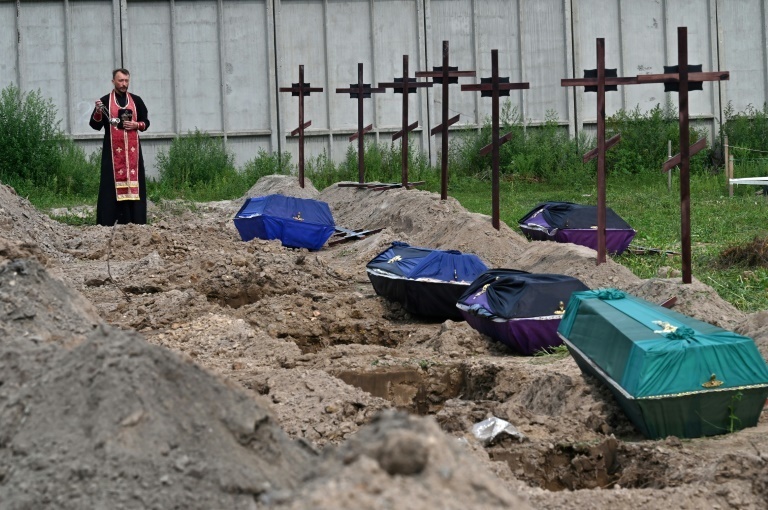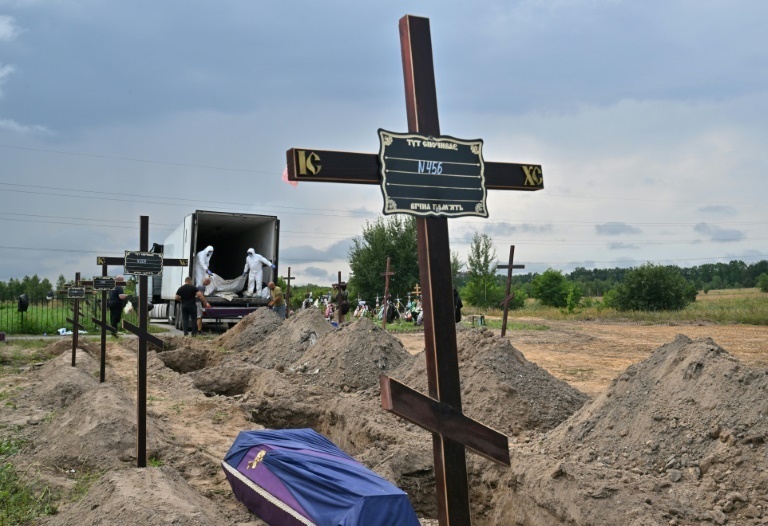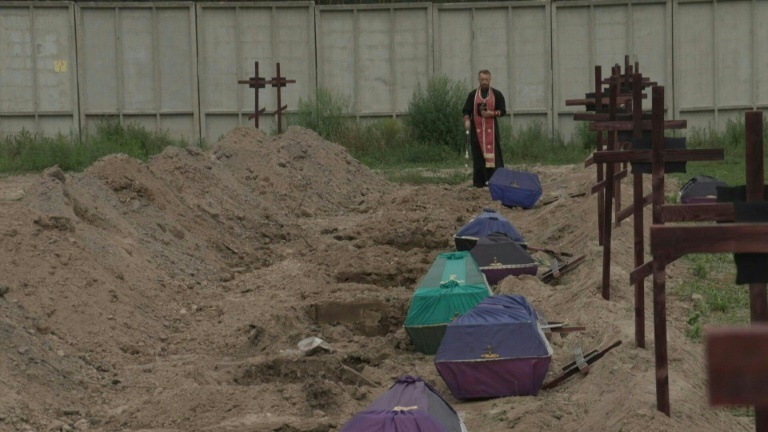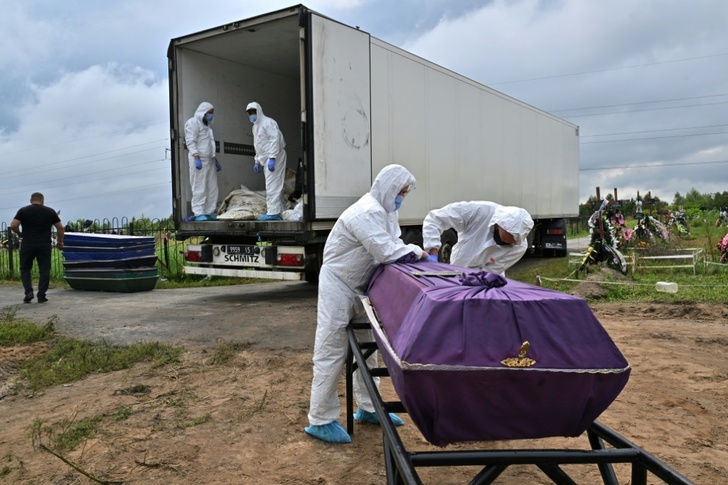Eleven coffins draped in purple cloth line freshly dug graves in the last row of Bucha's cemetery. Inside rest nine men and two women who were killed during Russia's occupation of the Kyiv suburb in March.
Almost all the dead had been hastily buried in mass graves by local residents as the fierce fighting left them with no other choice.
One body was found later after the Russian withdrawal from the region.
More than four months after AFP journalists discovered 20 civilian corpses in Bucha on April 2, the first evidence of war crimes in Ukraine, the local authorities have started burying the dead that no one has claimed.
Fourteen bodies were interred on Tuesday, with another 11 following on Thursday. Mykhailyna Skoryk-Shkarivska, an assistant to Bucha's mayor, told AFP another three ceremonies were planned.
Of the 458 civilians who died during the occupation of the town, around 50 have not been identified, she said.
- DNA tests -
"We are going to continue to work... Our goal is to find relatives for each unidentified person."

But procedures must be followed. For bodies to be formally identified, relatives must see and recognise them, explained Skoryk-Shkarivska.
Among the 11 bodies buried on Thursday, two men carried identity documents, but no one came forward to identify them despite an online appeal.
Skoryk-Shkarivska is not totally surprised. Although on the surface normal life has returned to Bucha, she said half of the leafy Kyiv suburb's pre-war population had not come back yet.
Workers at nearby municipal cemeteries plant 11 Orthodox crosses into the earth shortly before the arrival of the bodies, which were hastily stored in a refrigerated lorry.
Each cross bears a small sign with a number to allow the body to be found if DNA tests prove conclusive or a family member comes forward.
- 'Buried with dignity' -
Once the coffins are shut, Andriy Golovin, a priest whose church was near one of the biggest mass graves in Bucha, can finally read the last prayer.
"It's important for us that those people are buried with dignity, as humans and not just as lifeless bodies," he told AFP.

A 12th coffin should have been buried in the Bucha cemetery's section for unidentified bodies. It contained the corpse of Oleksandr Khmaruk, a 37-year-old former soldier who had been reported missing since March.
His parents had fled the town shortly before his disappearance and have been looking for him ever since. All they knew was that the Russians had arrested him.
In Khmaruk's residence, the doors of the three apartments where serving and former Ukrainian soldiers were living had been smashed in.
But it was impossible to find their son. The results from DNA samples had not arrived, but a photograph shared on messaging app Viber allowed them to identify him at the last minute.

He is buried in a separate area among dozens of other graves whose stones bear the inscription March 2022. Khmarouk's parents plan to launch another investigation.
"An informer gave his name. There was a woman accompanying the Russians, the neighbours heard her. But we don't know who she is or where she came from," he said.
tbm/neo/imm/ach/yad
© Agence France-Presse
Your content is great. However, if any of the content contained herein violates any rights of yours, including those of copyright, please contact us immediately by e-mail at media[@]kissrpr.com.
Source: Story.KISSPR.com

